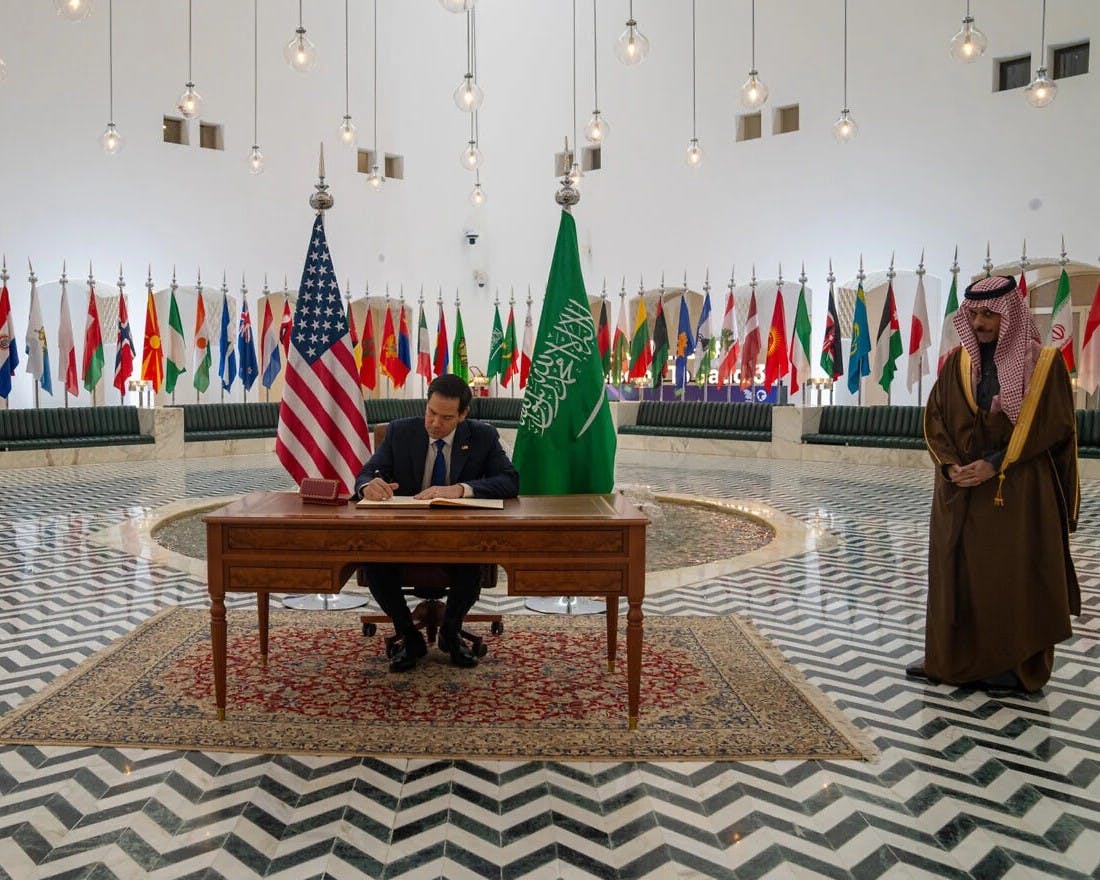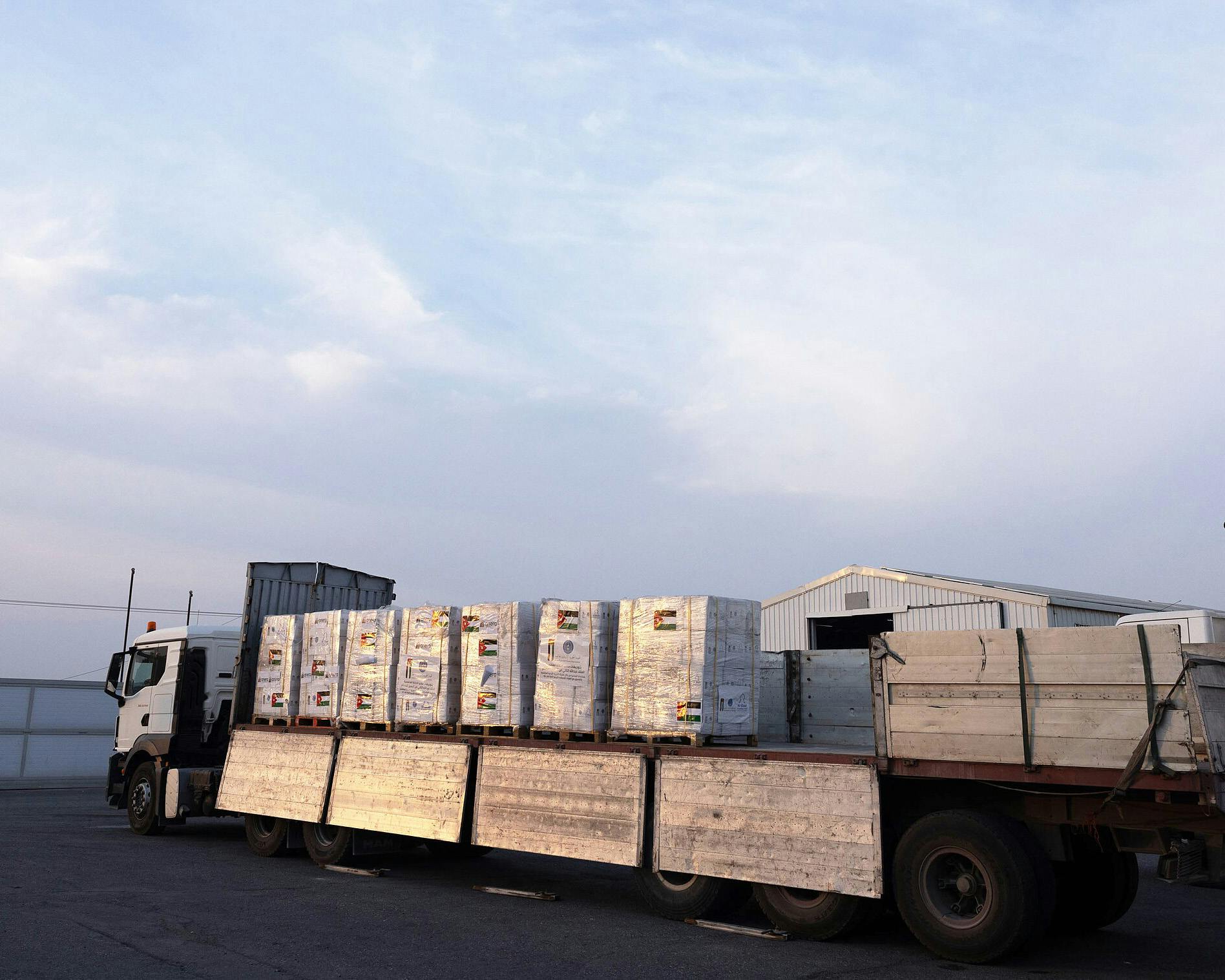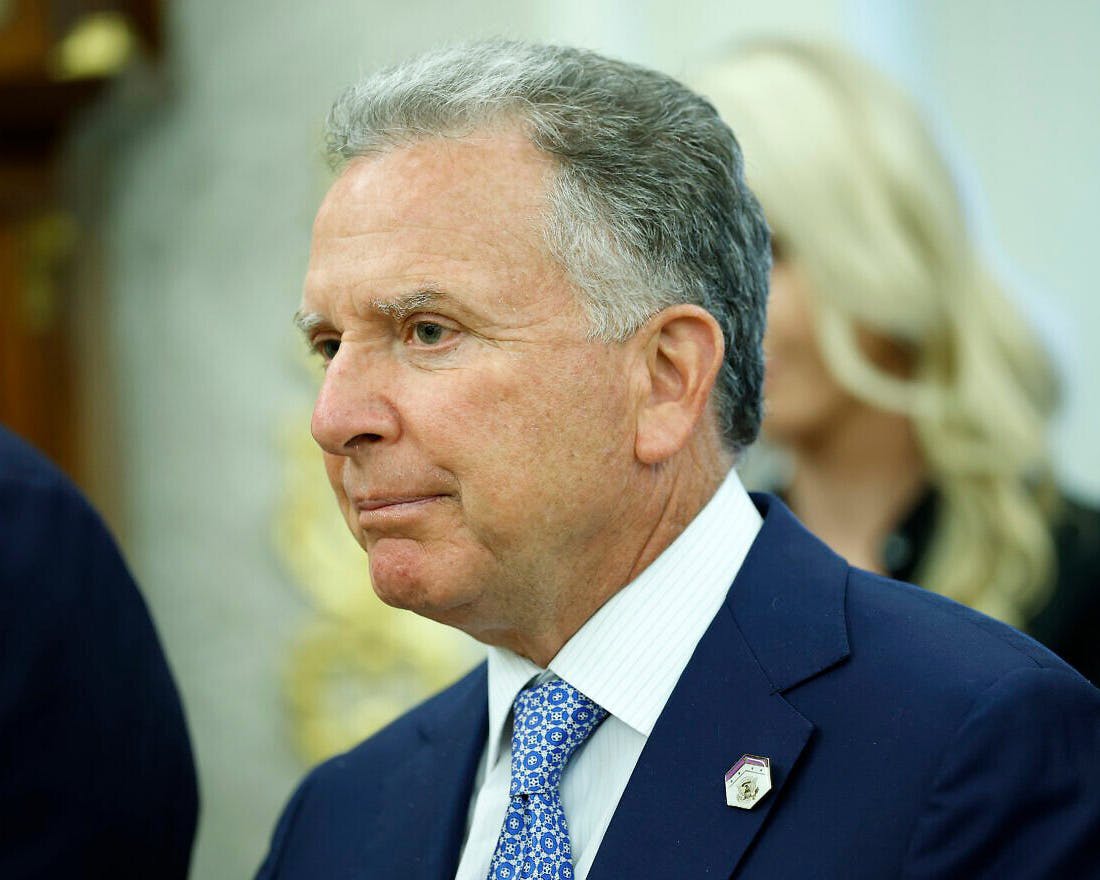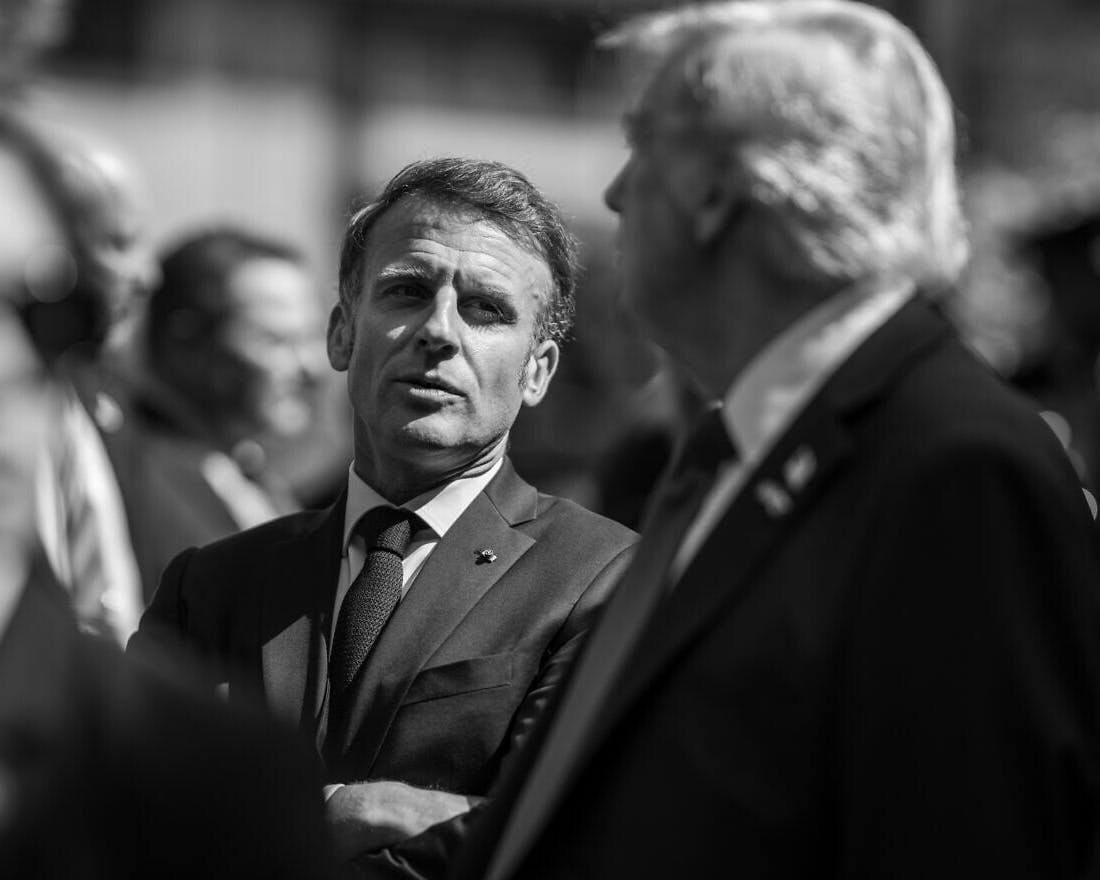Israel on Back Burner for Trump’s Visit to Middle East, Experts Say


Monday, 12 May 2025 | The defining foreign policy feature of US President Donald Trump’s first term was Israel’s integration into the larger Middle East, but as the president is set to visit Riyadh, Doha and Abu Dhabi this week, some experts say that it’s apt that the Jewish state is lower down on the agenda.
“It’s mainly a Gulf visit, targeting certain goals that have to do with Arab Gulf countries in particular and not about the Middle East in general,” Dalia Ziada, senior research and diplomacy fellow at the Jerusalem Center for Security and Foreign Affairs, told JNS.
With reports that the Trump administration is pursuing a civilian nuclear agreement with Saudi Arabia that is no longer contingent on Riyadh normalizing ties with Jerusalem, the push for Israeli–Saudi normalization may be faltering.
Even Saudi crown prince Mohammed bin Salman, who is known as MBS, “said this week that there will be no normalization before stopping the war in Gaza and Israel doing tangible steps towards a Palestinian state,” Danny Citrinowicz, a nonresident fellow at the Atlantic Council who studies the Middle East, told JNS.
“I don’t think he cares much about the Palestinians, but as the leader of the Sunni world, you cannot accept what Israel is doing in Gaza and nothing substantial regarding a Palestinian state and having normalization with Israel,” added Citrinowicz, a senior researcher at the Institute for National Security Studies. “MBS knows that.”
Citrinowicz predicts that the Trump administration will offer arms deals and civilian nuclear cooperation on a bilateral basis to the Saudis, since Israel isn’t in a position politically to agree to advancing a Palestinian state.
But according to Zineb Riboua, research fellow at the Hudson Institute who studies the Middle East, analysts who believe that Washington has lost interest in Israel–Saudi normalization may be misreading the situation.
“I think it’s quite the contrary,” Riboua told JNS. “It seems that the Trump administration is trying to proceed as it proceeded with the Abraham Accords.”
To Riboua, that means “first of all, going to the Middle East, making sure that Saudi [Arabia] sees the United States as a very reliable partner, making sure that there are more Saudi–US oriented deals and once that is sealed, then push for Israeli integration into the Middle East with an agreement,” she said.
The US State Department announced on Sunday that Marco Rubio, the US secretary of state, will accompany Trump on the trip to Saudi [Arabia] and Qatar from Sunday to Wednesday, during which the president “will look to strengthen ties between the United States and Gulf partners.”
“Secretary Rubio’s engagements with senior officials will advance solutions to global and regional challenges, expand bilateral trade and investment and reaffirm our strategic partnerships,” per Tammy Bruce, the department spokeswoman.
Among the aims reportedly on the docket are finalizing a mining and mineral resources deal with Saudi [Arabia] and an artificial intelligence partnership with the United Arab Emirates. Trump also intends to send a message to China and Russia that the United States is the global power with which to contend in the region, according to Ziada, of the Jerusalem Center for Security and Foreign Affairs.
Trump also hopes to broadcast that though the Saudis, Qataris and Emiratis tend to hedge their diplomatic bets, most stable actors in the unstable region side with Washington to a greater extent than with US adversaries, Ziada told JNS. “Arab Gulf countries believe in polygamy—in not having only one partner,” she said.
During the Biden administration, Saudi [Arabia] normalized relations with Iran through Beijing, “because of the lack of security guarantees coming from the United States,” Riboua, of Hudson, told JNS. “China has been very vocal about its involvement in the Middle East.”
“Saudi Arabia especially has been courted by the Russians, by the Chinese,” she said. “For the United States, this is really a signal that they’re coming back to the Gulf and their commitments towards Middle East allies have not vanished, contrary to common belief.”
Israel is not expected to be a dominant topic of discussion, but the Jewish state is likely to be affected by talks of negotiations between Washington and Tehran on a revised nuclear pact.
“The announcement of President Trump’s desire to make a deal itself was a shock to everyone in the region, especially Arab Gulf countries who are directly threatened,” Ziada told JNS.
“Their security is directly threatened by Iran and its militia, so maybe he wants to get their approval and give this strong message that, ‘Yes, we’re doing this for the good of everyone, and that the concerns of you, as Arab Gulf countries, are on the mind of the United States administration while making such a deal,’” she said.
Ahmed al-Sharaa, the Syrian president, is reportedly set to meet Trump on Tuesday in Saudi Arabia, as is Palestinian Authority leader Mahmoud Abbas.
“One of the first things that will come up in the Saudi–US meetings is actually the post-Assad Syria,” Riboua said. “The Saudis have been very much engaged with al-Sharaa, especially when it comes to reconstruction and engagement.”
“That definitely is on the radar, because Trump is looking into withdrawing troops from Syria,” she added.
Trump will want to avoid discussing Gaza and the ongoing war with Hamas on the trip, given US support for Israel and the tension between the Jewish state and the Arab Gulf due to the war, according to Ziada.
Trump “may hesitate” to discuss furthering Israel–Arab relations, “in order not to disturb what he wants to achieve, because it’s a very overwhelming topic in the region,” Ziada told JNS.
“It may be mentioned within the frame of having a bigger role for Saudi Arabia or Arab Gulf countries to further stabilize the region and play this big sister role that they are craving, especially Saudi Arabia,” she said.
A two-state solution conference that the Saudis and the French are sponsoring at the United Nations is scheduled to take place in a few weeks. Ziada expects the Trump administration to wait until then for substantive discussion about the future of Gaza.
She told JNS that Israel isn’t being ignored, however. Arab Gulf countries recognize Israel’s power as “a key player in the region” and “an agenda setter that’s not anymore the small country that’s preoccupied with defending itself against terrorist organizations,” she said.
“Due to historical sensitivities, the history of the relationship between Arabs and Israel and all these dogmatic build ups from the past—it makes it difficult for them to proceed with things like the Abraham Accords,” Ziada told JNS. “But it’s about priorities. It’s about when to take the steps, more than about whether it is a ‘yes’ or ‘no.’”
Trump primarily “needs an achievement in his foreign policy” given his struggles to lock down a resolution to either the Israel–Hamas or Ukraine–Russia wars, according to Citrinowicz, of the Atlantic Council.
“Saudi Arabia can offer him tangible achievements so he can show that through foreign policy, he can generate income for the US market,” Citrinowicz told JNS. “Of course, he will get the royal treatment.”
“It’s a very problematic visit for Israel with all the tension in the backdrop of the visit and everything will be focused on the US–Saudi relations,” he added. “It actually will highlight the fact that, for now, Saudi Arabia is much more important in the region than Israel.”
(This article was originally published by the Jewish News Syndicate on May 11, 2025. Time-related language has been modified to reflect our republication today. See original article at this link.)
https://www.jns.org/israel-on-back-burner-for-trumps-visit-to-mid-east-experts-say/
Related Resources

Discover Your Purpose and God’s Heart For You
In today's divided, turbulent world, it's essential for the Church to rediscover God's heart. Our free e-book, authored by a seasoned expert with three decades of experience in Israel, delves deep into the teachings of Jesus (Yeshua) to reveal God’s principles of love and purpose. Learn how embracing these truths can bring significance and impact to your life, even amidst chaos. Subscribe now to receive your free copy and embark on a journey of transformation.




